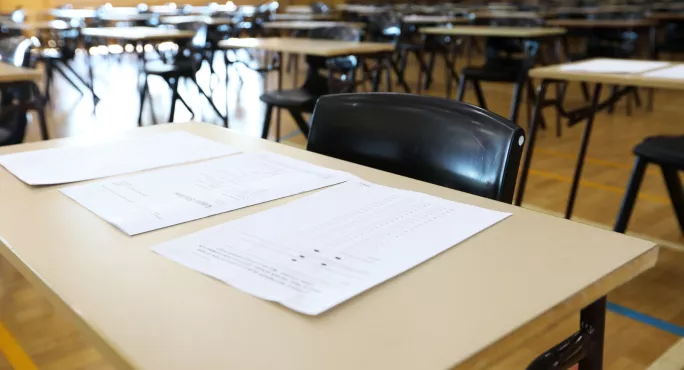The chief regulator of Ofqual has told the education secretary that next summer’s grade boundaries must not be “implausible”.
Writing to Gavin Williamson, Dame Glenys Stacey confirmed that the grading for GCSEs and A levels will be in line with the generosity of 2020, although Ofqual will aim to “spread the generosity of 2020 between subjects more evenly, so that we do not bake in differential standards as between one subject and another”.
Dame Glenys added that grade boundaries next year must not be so low as to undermine public confidence in standards.
Ofqual: Teacher grades wouldn’t fix lost learning
Exams: Grading will be ‘more generous’ next summer
Experts: Panel set up to look at regional learning loss for exams
“In overseeing awarding, we will be mindful of the acceptability of grade boundaries, to avoid undermining public confidence in the credibility of grades,” she said.
“It will be important that grade boundaries - particularly at the lower grades - are not so low as to be implausible. A qualification must mean something by way of knowledge and understanding of the subject, and indeed we have a statutory objective in that regard.”
She also said that the regulator would be prioritising “our statutory objective to promote public confidence, over and above our more well-known objective to secure standards”.
And she stressed the risks involved in changing assessments at this stage, suggesting this could increase the number of errors in exam papers.
“Producing additional papers outside of the established process and the short timescales for paper development increases the risk of errors,” she said.
“There are delivery risks involved in providing additional papers later than the normal exam window, including for schools and colleges in being able to administer them.”
“It is important to recognise that in normal times, we would not contemplate introducing changes to assessments due to be taken next summer at this point in the year, because of the risks of doing so,” she said.
Dame Glenys confirmed that Ofqual will work with exam boards to set out what advance information or support materials will be allowed subject by subject in January, but stressed it is important these measures don’t go too far.
“Where advance information is provided it should be sufficient to support teaching and revision. But it should not be so extensive or specific that students could safely spend their time developing and then memorising exam answers,” she added.
And she said that differential lost learning remained “one of the most intractable issues that the education system faces”, with “any further steps to address this issue through exams and assessments are fraught with difficulty, and yet changes to the exam and assessment system alone are not enough to address the significant risks to public confidence this presents”.
She said Ofqual welcomed the government’s announcement of an expert advisory group on this issue and that the regulator looked forward to advising the group on the issue of differential learning loss.
There is yet to be any announcement on what grading will be used in 2022, with MP Robert Halfon raising concerns in the Commons today over whether generous grading in 2021 risked “baking in” inflation into the system.
“We are all rightly focused on exams for 2021 but, of course, as we consider the options and make policy decisions, we have an eye beyond that to consider the potential impact on students who will be taking exams in 2022 and beyond, and we are considering the resilience of the system in the longer term,” Dame Glenys said.
